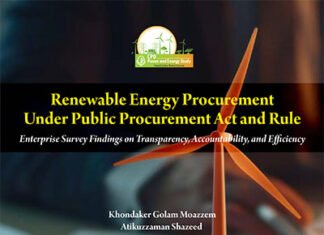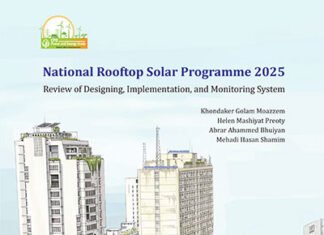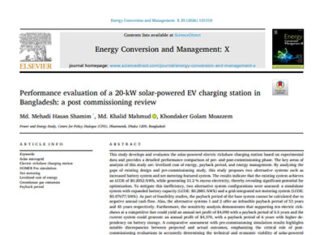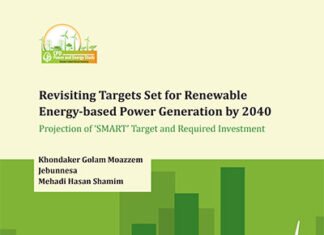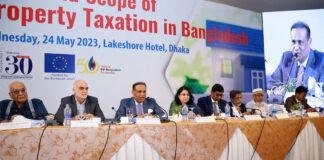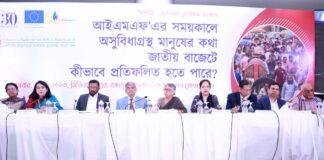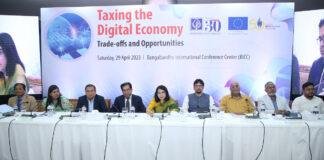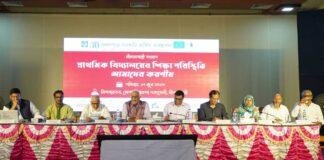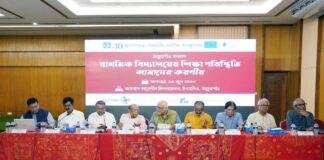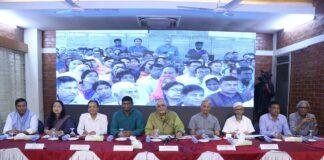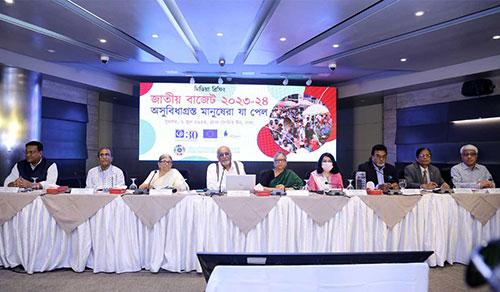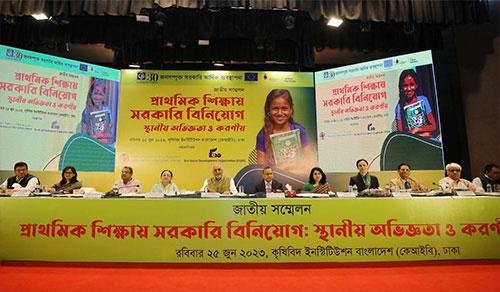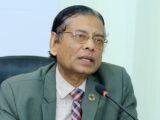Towards a People-Centric Public Financial Management in Bangladesh
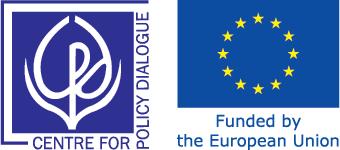
The Centre for Policy Dialogue (CPD), with support of the European Union Delegation in Bangladesh, has launched in July 2022 a two-year-long research-outreach project titled Towards a People-Centric Public Financial Management in Bangladesh. This project is part of a larger EU programme titled “Supporting the implementation of the Public Financial Management (PFM) Reform Strategic Plan in Bangladesh.”
The premise of the project contends that successful implementation of PFM reform hinges on strengthening the “demand side” factors generated by the voices of the stakeholders. Earlier, international development partners have largely focused on the “supply side” of PFM, such as capacity building of the PFM related institutions. While these supply-side interventions had been necessary, they were not enough to sustainably strengthen the country’s PFM. Amplifying the voices of the citizens who are directly impacted by public revenue collections and expenditures is integral to ensuring a strong PFM. Without strengthening the demand side, a transparent, just, and efficient PFM cannot be established.
The research-outreach project seeks to develop a transparent, just, and efficient PFM in Bangladesh by contributing in furthering the following objectives:
- Creating broad-based and efficient revenue collection systems and ensuring distributive justice
- Ensuring that the PFM system is responsive to the experiences and expectations of citizens
- Strengthening citizens’ trust in the PFM policymakers and administration
- Giving voice to the left behind at the local level concerning public finance
In view of the above, the project intends to pursue the following four sets of activities:
- Undertaking technical studies to explore more efficient and just means of revenue collection and redistribution
- Performing grassroots level social audits to assess the effectiveness of PFM
- Providing capacity building inputs to the Members of Parliament
- Preparing Citizen’s Budget to reflect the expectations of the grassroots
The members of the research team are as follows:
- Dr. Debapriya Bhattacharya, Team Leader, Distinguished Fellow, Centre for Policy Dialogue
- Professor Mustafizur Rahman, Distinguished Fellow, Centre for Policy Dialogue
- Towfiqul Islam Khan, Senior Research Fellow, Centre for Policy Dialogue
- Md Asiful Islam, Programme Associate, Centre for Policy Dialogue
- Hridoy Shawkat Ali, Programme Associate, Centre for Policy Dialogue
BOOK
In recent years, there has been an exponential growth of the digital economy in Bangladesh, both in terms of the diversity of the services offered and types of activities as also the number of players who are actively participating in the digital economy landscape. The recent past pandemic has triggered many digital-platform-based entrepreneurial initiatives in Bangladesh, including E-commerce, F-commerce, startups, home-based freelancing activities, and business process outsourcing (BPO) activities, to name a few.
In this backdrop, issues of taxing the Bangladesh digital economy have emerged as an important area of policy interest for several reasons: search for additional opportunities in view of low domestic resource mobilisation (DRM) in Bangladesh, digital economy as a potential source of taxation; the need to revisit the incentive structure for the digital economy; and the need to introduce new policies to stimulate this sector.
This paper has attempted to address four issues in connection with the above: (a) Map the digital landscape of Bangladesh; (b) Capture the current state of the country’s digital economy taxation; (c) Draw lessons from cross-country experiences and best practices in the area of digital economy taxation; and (d) Come up with a set of actions and policy initiatives to expand the opportunities of taxing the digital economy in Bangladesh, taking into cognisance the involved trade-offs and new opportunities.
BRIEFING NOTE
DIALOGUE
Property Tax Collection is Must for Generating Revenue and Alleviating Inequality
আইএমএফ এর অর্থ ব্যবহারে যেন বৈষম্য না বাড়ে সেজন্য জাতীয় বাজেটে...
Bangladesh’s Emerging Digital Economy and the Need for Rational Taxation
SUB-NATIONAL DIALOGUE
Weak primary base pose challenges to pursue advanced education
Job markets need students with practical know-how
Primary Education Needs at Least 25% of National Education Budget
MEDIA BRIEFING
National Budgets in Bangladesh: Myths and Realities
A media briefing titled ‘National Budgets in Bangladesh: Myths and Realities’ was held on Wednesday, June 7, 2023. The Centre for Policy Dialogue (CPD) and Citizen’s Platform for SDGs, Bangladesh, in cooperation with the European Union, jointly organised the event at the BRAC Centre Inn Auditorium, Mohakhali, Dhaka.
MP WORKSHOP
Role of the MPs in the Budgetary Process has to be Strengthened
Centre for Policy Dialogue (CPD) organised a brainstorming meeting with the Members of Parliament (MPs) of Bangladesh Parliament focussing on the “Role of Members of Parliament in Public Financial Management”. The meeting was held in a retreat made on 20 March 2023, in Cox’s Bazar.
CONFERENCE
Citizen participation and adequate funding are necessary to enhance the local primary education system
It is crucial to address the need to increase the number of teachers in each school and provide subject-specific training to them. In many schools, especially at the primary level, the scarcity of teachers poses a significant challenge


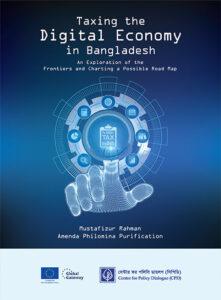
![Currents of Change [Volume-3, Brief-02] Quarterly Brief of the Power & Energy Sector of Bangladesh](https://cpd.org.bd/resources/2026/02/Quarterly-Brief-of-Power-Energy-Sector-of-Bangladesh-3-cover-324x235.jpg)
